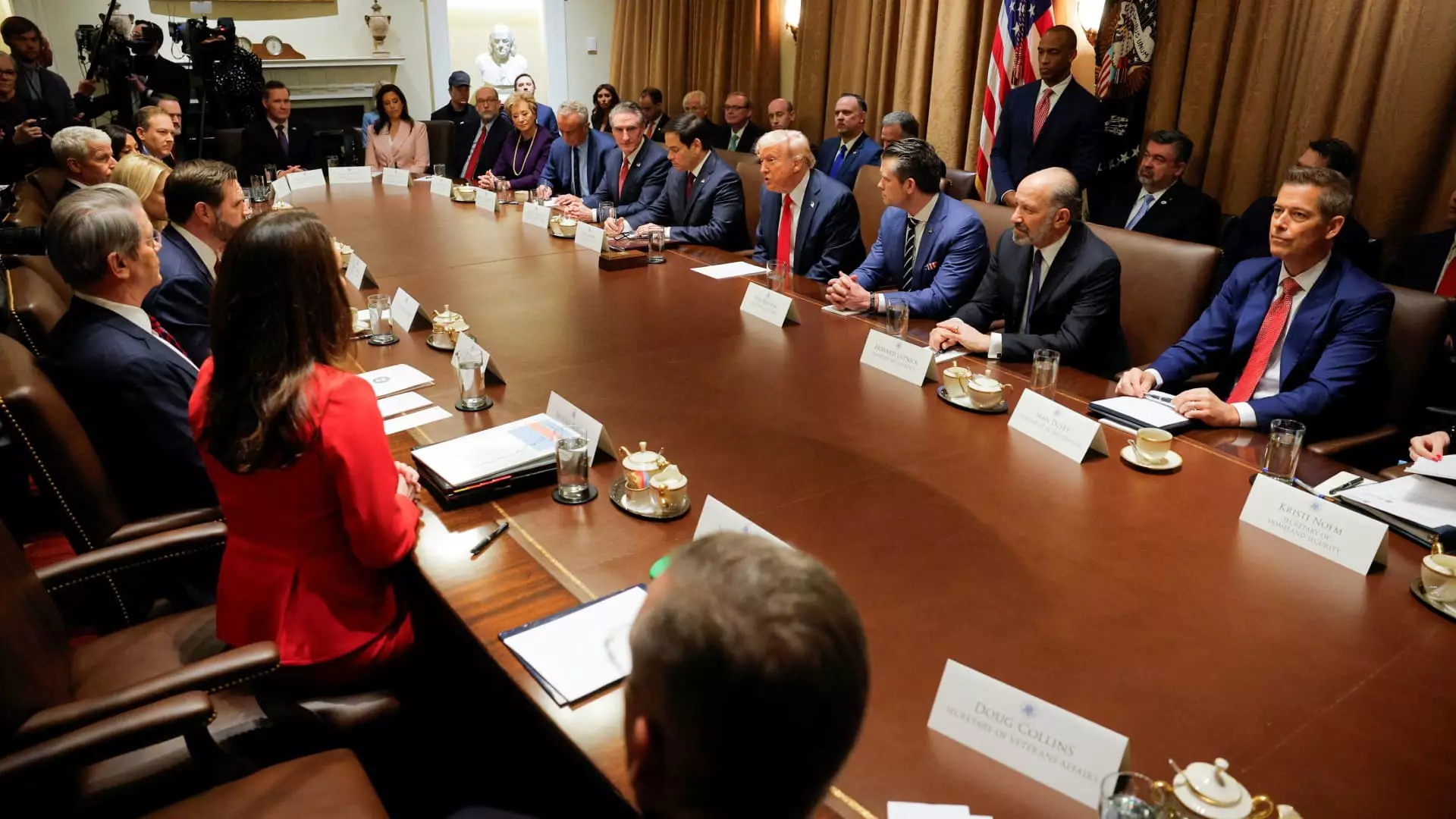The recent announcement of a new investment visa program by former President Donald Trump, dubbed the “gold card,” has stirred intense debate among immigration experts and tax advisors alike. This program proposes a $5 million investment for overseas wealthy individuals seeking permanent residency and a potential path to citizenship in the United States. While such initiatives are not unprecedented, the implications of the gold card extend beyond mere residency; they evoke discussions about tax benefits and socio-economic divides.
The gold card represents one of the highest costs associated with residency visas globally. Compared to other nations, the U.S. program stands out not only for its financial commitment but also for the attractive tax loopholes it introduces. As such, it has caught the attention not just of potential applicants, but also of legal experts within the realm of immigration and taxation.
Experts indicate that there is a growing demand for residency among affluent individuals, particularly from countries where wealth concentration is significant. Dominic Volek, a significant figure in advising wealthy clients, highlights that focus on U.S. residency remains a popular choice. Current predictions assert that by 2025, around 135,000 millionaires might seek relocation to other countries, with the U.S. and the United Arab Emirates cited as prime destinations.
The initial hype surrounding the gold card suggests an eagerness among ultra-wealthy individuals to secure a place in the U.S., which is often viewed as a stronghold for wealth creation. Trump’s assertion that the program will “sell like crazy” reflects market confidence among potential investors who are looking for an easier pathway to the American dream.
A crucial element of the gold card proposal is the controversy surrounding tax policy. Traditionally, U.S. citizens and permanent residents are obligated to pay taxes on their worldwide income, which often puts them at a disadvantage when compared to their international counterparts. However, the gold card holders would be exempt from taxation on their overseas income—a benefit arguably not available to regular American citizens.
This shift could fundamentally alter the landscape of taxation for the wealthy in the U.S., creating a dual system of tax obligations based on residency status. Legal experts, like Laura Foote Reiff, are raising alarms about this potential bifurcation, which could lead to increased inequalities and a dramatic restructuring of fiscal responsibilities among the affluent. The prospect of purchasing residency with such beneficial tax treatment has left many questioning the ethics and implications of such a program.
As countries worldwide strive to attract high-net-worth individuals, the U.S. is now positioning itself in an increasingly competitive global market. Although the gold card would be among the costliest investment visas available, it offers distinct advantages, including access to a world-class economy and lifestyle. Comparatively, other countries such as Singapore and New Zealand have similar programs but with different investment thresholds.
Historically, the U.S. had an array of investment visa options, including the EB-5 program, which provided green cards for investments starting at $900,000. However, the challenges associated with bureaucracy and allegations of fraud led to changes that have limited its attractiveness. By potentially streamlining the process and offering better incentives, the gold card could revive interest in U.S. residency among the wealthy.
Despite the optimism surrounding the potential for the gold card to attract international investors, analysts caution against the expectation of overwhelming demand. While Trump’s ambitious claim of potentially selling a million gold cards suggests significant interest, experts anticipate that the actual demand would be much lower. The decision to relocate is often tied to several factors beyond financial means, including family, security, and cultural ties.
Moreover, a significant portion of ultra-wealthy individuals may prioritize investments in opportunities other than residency, particularly those focused on business development and strategic hires within the U.S. market. The long-term effects of this initiative on the broader immigration landscape remain uncertain, as wealthy individuals weigh the benefits and drawbacks of such investments against their current economic and social situations.
The Trump gold card proposal is reflective of broader global trends in migration, wealth concentration, and tax policy. While it presents attractive incentives for high-net-worth individuals, such shifts in immigration and taxation may catalyze significant societal implications within the United States. The discourse surrounding the gold card underscores the intersection of wealth, privilege, and policy, highlighting the responsibilities of nations in addressing the desires and needs of both citizens and prospective residents. As the plan develops, it will be crucial to observe not just who benefits from the program, but also its lasting impact on American society and the economy.

